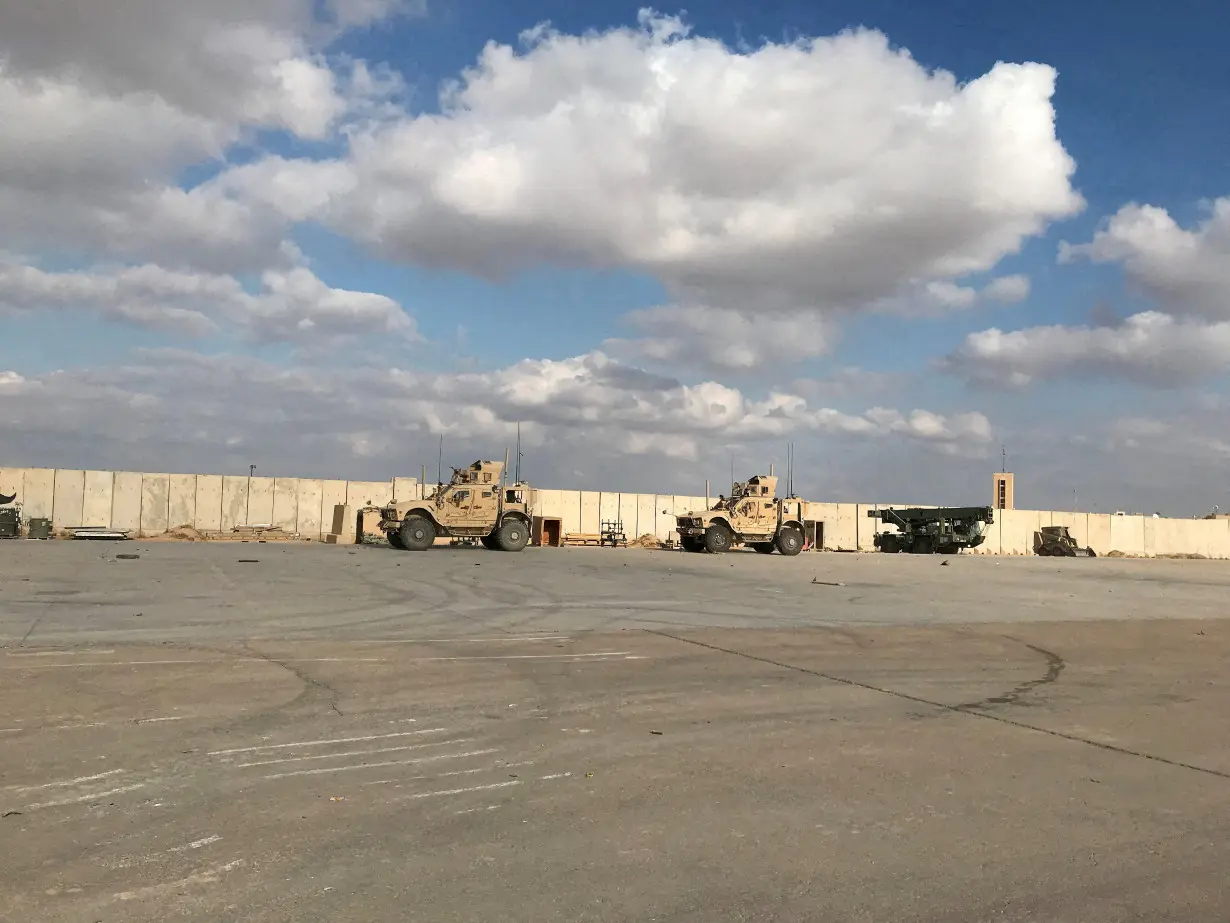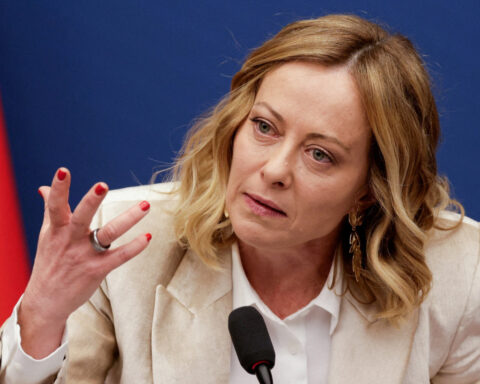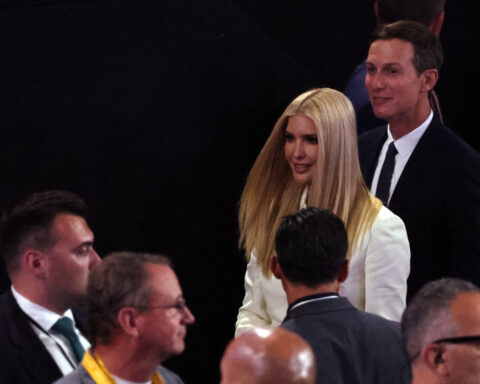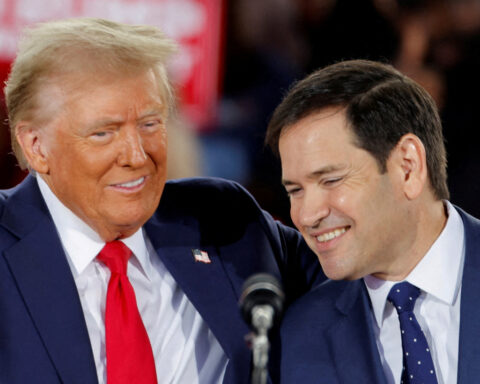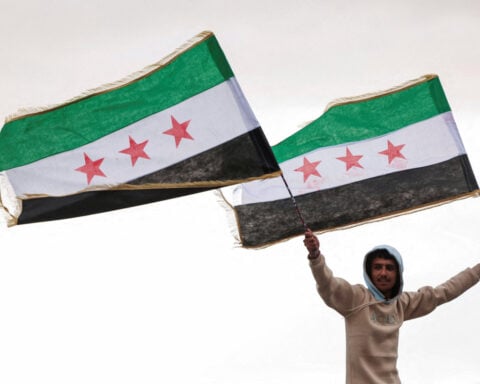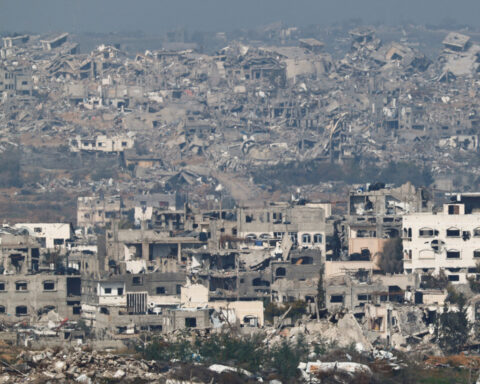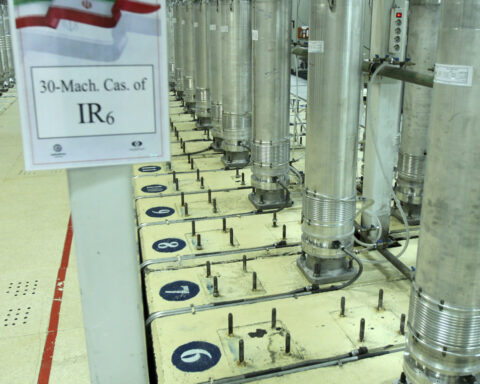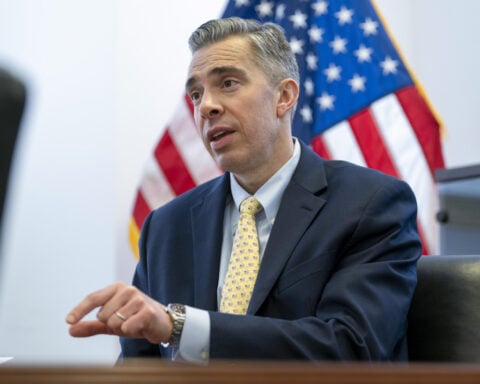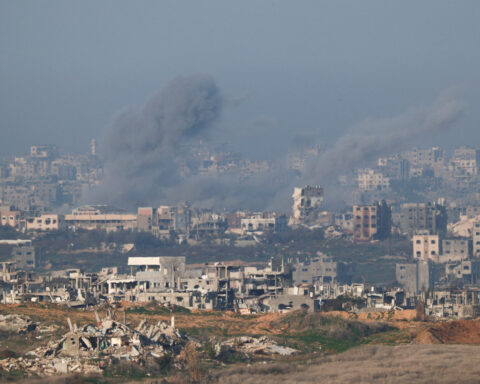BAGHDAD (Reuters) - Iraq has identified links between several of the perpetrators of a Dec. 7 multiple rocket attack on the U.S. embassy in Baghdad and some of the country's security services, a spokesperson for Iraq's prime minister said in a statement.
The statement did not elaborate on which security services the alleged perpetrators were linked to, but said several of them had been arrested and work was ongoing to arrest others.
Iraqi security forces had also arrested individuals who assisted the perpetrators with logistical support for the attack and facilitated their movements near the highly-fortified Green Zone where the attacks took place, the statement said.
The attack, the first on the embassy in well over a year, was seen as an escalation in weeks of attacks on U.S. forces in the region that were claimed by Iraqi Shi'ite Muslim armed groups with close links to Iran.
No group has claimed responsibility specifically for the embassy attack.
It was condemned by top U.S. officials, who called on Iraq to hold the perpetrators to account and reiterated that the U.S. maintained the right to respond, as it has several times with air strikes on militants.
Iraqi Prime Minister Mohammed Shia al-Sudani described the embassy attack as an act of terrorism.
Some of the heavily armed Shi'ite Muslim groups that have claimed a role in many attacks also form brigades in the Popular Mobilization Forces, an Iraqi state security force technically under the command of Sudani himself.
Those factions have vowed to continue the attacks, citing Washington's backing of Israel in its devastating bombardment of Gaza and the presence of U.S. troops in Iraq, whom they describe as an occupying force.
Aside from its diplomatic staff in Iraq, the United States has about 2,500 troops in the country on a mission it says that aims to advise and assist local forces trying to prevent a resurgence of the militant group Islamic State, which in 2014 seized large swathes of both Iraq and Syria before being defeated.
(Reporting by Timour Azhari, Writing by Timour Azhari and Ahmed Elimam, Editing by Michael Georgy, Alex Richardson, Alexandra Hudson)

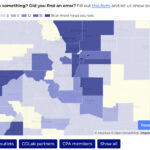 Universities are mapping where local news outlets are still thriving − and where gaps persist
Universities are mapping where local news outlets are still thriving − and where gaps persist
 This class uses museums to show law students the high art of curating ideas
This class uses museums to show law students the high art of curating ideas
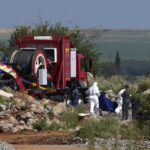 78 dead at abandoned South Africa gold mine that was scene of a standoff. Toll is expected to rise
78 dead at abandoned South Africa gold mine that was scene of a standoff. Toll is expected to rise
 Poland's leader accuses Russia of planning acts of terror against 'airlines over the world'
Poland's leader accuses Russia of planning acts of terror against 'airlines over the world'
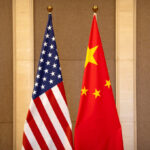 China blacklists four U.S. companies for involvement in arms sales to Taiwan
China blacklists four U.S. companies for involvement in arms sales to Taiwan
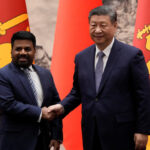 China, Sri Lanka agree more investment and economic cooperation
China, Sri Lanka agree more investment and economic cooperation
 Italy's Salvini faces calls to quit over late-running trains
Italy's Salvini faces calls to quit over late-running trains
 Look of the Week: Timothée Chalamet adopts London’s most stylish accessory
Look of the Week: Timothée Chalamet adopts London’s most stylish accessory
